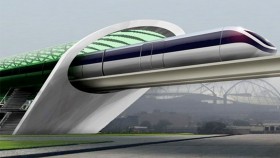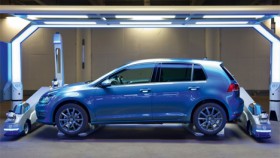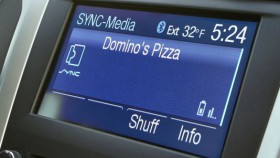Our innovation knowledge leader, Aurelie Jamard, reports that Gens Y and Z haven't lost their enthusiasm for cars. They're just hungry to see a greater push for innovation and for understanding how needs are changing. Green light, let's go...
In a recent report published by Ford, the brand decided to focus their research on Gen Z (young people born after 1993, according to Ford’s definition). Interesting stuff, but while it’s important to understand the digital lifestyle and aspirations of the youngest among us, the broader Millennials set shouldn’t be left out of the equation as they’ve pioneered the changes and trends that now increasingly characterise their Gen Z peers in Western economies. Most Millennials, when hit by the recession, started to review luxury codes and perceptions of status, but also blur the boundaries between owning and renting or sharing.
However, an important factor is that this generation still seems open to the idea of owning cars. Will it be the same for Gen Z as they reach the legal driving age? Gen Z are the true digital natives – they were born with smartphones in their hands; they know how to navigate the web and use it to their advantage. They’re socially active, defend the environment and their community, and they are at the heart of the sharing economy (think AirBnB, Uber, SupperKing, etc). Looking ahead to 2015 and beyond, many of the key trends listed below were conceived and shaped by Millennials, but it’s Gen Z that will really drive them forwards.
Concerns about the environmental and social impact of cars
Gen Z are concerned about their environmental impact on the world, but also on their community. In 2015 they’re most likely to turn to electric cars (whether high end or not) or other eco-friendly alternatives. In this space Tesla is a great example of a brand that knows how to seduce Millennials and Gen Z with their digital showrooms that save space and disrupt the status quo of the traditional franchise dealer model, with transparent initiatives such as opening their patents to the industry, and with their visionary outlook on the future of transportation (Hyperloop, anyone?).
Dematerialisation means ownership is less desirable
Gen Z are also growing up in a dematerialised world. These young customers do not buy physical DVDs, albums or books anymore – they subscribe to Netflix, Spotify and buy ebooks. They favour contactless payments, Google Wallet and Bitcoin, over cash. And they might prefer jumping in Uber cabs or borrowing a ZipCar instead of investing in a car. The consequences of dematerialisation on customer expectations can be seen everywhere: there is a lesser need for young people to drive to stores when brands offer competitive pick up and delivery services. Public transports and car sharing/renting schemes help them get to work, to the airport or to the doctor. And if they do drive to the airport in their own car, services such as Düsseldorf Airport’s robot valet and apps of the likes of ParkMe or SpotHero will reserve, park and find their car for them.



Connectivity and technology as means to greater innovations
So Gen Z live in a world of apps and services, and their car shouldn’t be an exception to the rule. In the upcoming years Gen Z and their older Millennial counterparts will expect their car to act as a WiFi hotspot and enable them to do the same things that they do from home or on the go. This explains why Domino’s Pizza partnered with Ford to enable customers to order pizzas from the control panel of their car, and why 2015 cars from General Motors will include connectivity to the 4G LTE network. While 2014 was the year of connected watches and other devices, cars will get smarter in 2015 thanks to internet-enabled adapters that will track the car’s health metrics and fuel efficiency. And the future of cars doesn’t stop there. Connectivity will lead to greater innovations such as driverless cars from Google, BMW or even Baidu, and connected roads.
Regulations will ease
Back in June this year I wrote an article in Wired about regulations needing to keep up with technological evolution and disruptive innovations across categories. Half a year down the line and very little has changed in the car industry, but hope lies ahead: Innovate UK recently gave the green light to test driverless cars in four UK cities this year, and customers keep using and supporting companies of the likes of Uber, who are constantly innovating and putting the user at the centre of the experience.
So if less Millennials and Gen Zers want to drive, brands need to embrace change and adapt their products and services to the mobility needs of these new generations, instead of sticking to what they know and take for granted. Younger generations are not losing interest in cars, they’re just looking for car innovation: new types of vehicles, new business models, new services that will blend into their lifestyle and adapt to their future needs. CES this year unveiled an autonomous car playing with new luxury codes, and our trend predictions for 2015 highlight several trends which will also have an impact on the car industry in the next months. From the omni-self to ‘instaliving’, young consumers will expect car makers to provide 24/7 connectivity, convenient solutions, be mindful of their societal impact and genuinely do something about it. To suggest a category resolution for 2015: that regulators and brands do not shy away from shaking things up.
